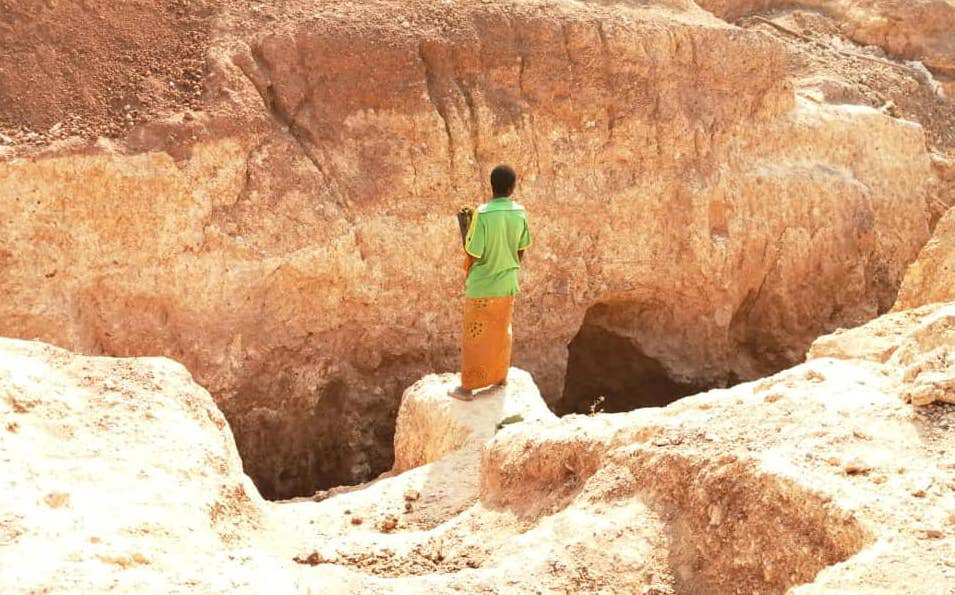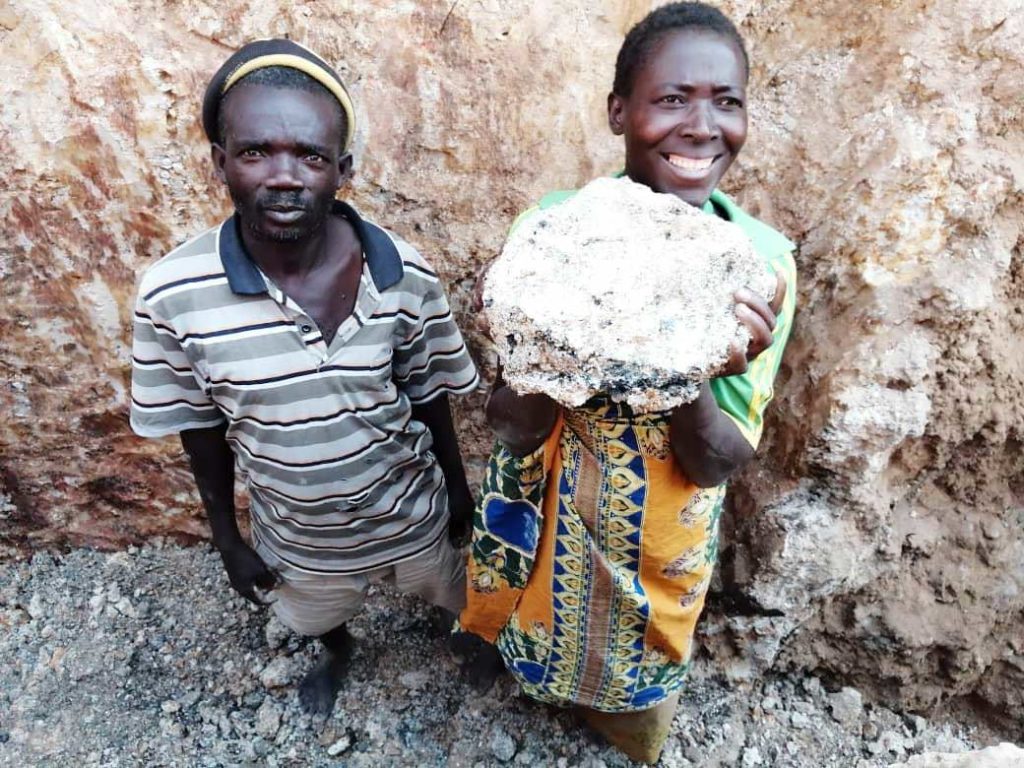Edmond Kangamungazi of Caritas Zambia says the mining industry must support local people for the common good, not exploit them.
Here in Zambia we are watching the Synod closely. Its themes of environmental protection and responsibility towards the poorest people are highly relevant for our country.
Our teams work day to day with people whose lives and landscape are being scarred by the extractives industry. I have been Head of Programmes here for twelve years and I have seen children working in tin mines, farmland destroyed by open pit mining and community health affected by waste and pollution.

Luapula, Zambia: Mary goes into this pit every day in search of manganese ore.
Photo by Mando Chiundaponde/Caritas Zambia
This photo shows Bana Mary, a working mother whose family rely on her to provide for them. So every day she climbs into a deep hole in the rock in search of manganese ore, without safety gear or any proper tools.
It is a shockingly risky undertaking, and a whole tonne of ore might only bring her around eight dollars, prices set by the mining licence holder at a fraction of the market price. Yet Mary has no other source of income, so she must go back down into that chasm daily – along with hundreds of women in Luapula province.
Their labour is being exploited to meet the global hunger for this mineral, used in the battery cells of electric cars and mobile phones.
Mining and the common good?
I was lucky enough to meet Pope Francis in Rome this year at a meeting of mining executives and those of us representing communities affected by the industry. He spoke powerfully about the responsibility that mining companies and governments have to care for people like Bana Mary.
“Mining should be at the service of the human person and not vice versa, I urge everyone to respect the fundamental human rights and voice of the persons in these beautiful yet fragile communities.” – Pope Francis
Bana Mary, the breadwinner of her family, earns only $8 for a tonne of manganese ore she collects. Prices are set at a fraction of the market price in #Zambia. We advocate for policies on #mining that respect rights of the poor and protect the environment. https://t.co/SrHghsyQcC pic.twitter.com/KdsqUMLWQb
— Caritas (@iamCARITAS) October 28, 2019
I am a specialist in Economic and Social Accountability, which means it is my mission to hold governments and businesses to account for their interactions with local communities. Our vision for our community is one of integral human development. It’s not just about having a hand-out, but enjoying a full human life. That’s why we lobby the government to make sure their policies work for the poor and for the environment too – these two go hand in hand.
We try to engage with the big mining businesses who move into our areas, to help them work in a way that protects not only people but also the biodiversity of the landscape.
Caritas Zambia and civic education
It can feel very hard for poor communities to stand up to big business, because the distribution of power is so uneven. We run training on how to demand their civil, cultural and land rights. We start by setting up parish Justice and Peace and Development teams, and use the Church’s social teaching as a source of inspiration.
Of course it is not just companies that must respect the land, but people too. Rural communities with no modern energy sources will cut down trees for charcoal. In many instances their farming methods harm the environment and contribute to pollution. So the Caritas Zambia team work with them on tree planting initiatives and learning about organic farming.
We may be poor but we deserve to be treated like humans
Respect for the fundamental human rights of the local community is a sacred principle. Attention for the safety and well-being of the people involved in mining operations and those who champion their cause is paramount.

Luapula, Zambia: A tonne of manganese ore will earn Mary only 8 dollars. Photo by Mando Chiundaponde/Caritas
To echo Pope Francis’s words, mining should be at the service of the entire human community, leaving no one behind. Whether here in Zambia or in the forests of the Amazon, it must never be allowed to dehumanise us and divide us.
Earth is our home. There is nowhere else to go. So we must safeguard it, and always think and act as members of one common home.
Edmond Kangamungazi was interviewed by Harriet Paterson for Caritas.
